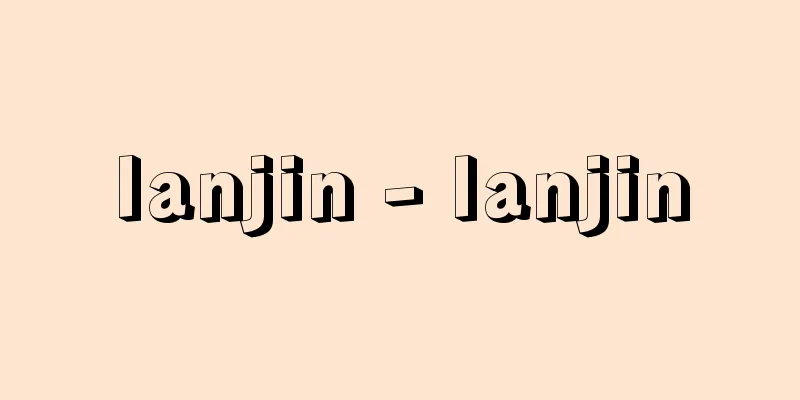Military Comfort Women

|
These women were placed under the supervision of the Japanese military during World War II and provided sexual services to soldiers and civilian employees of the military. The number is said to be between 80,000 and 200,000. At the time, they were called "military comfort station women," but the term "military comfort women" became more common after the war. After the protracted Sino-Japanese War, military comfort stations were set up in areas occupied by the Japanese military in China as well as Southeast Asia and the Pacific. In addition to Japanese comfort women, there were women from all over Asia, and in some cases the recruiters involved in human trafficking and abduction. In the 1990s after the war, awareness of the violation of human rights and sexual crimes spread, and lawsuits began to file in various places, starting with three Korean women who filed a lawsuit against the Japanese government in 1991 seeking compensation. In response to these developments, the Japanese government (the Miyazawa Cabinet) issued a statement by the Chief Cabinet Secretary (the Kono Statement) in 1993, acknowledging that the former Japanese military was directly or indirectly involved in the establishment and management of comfort stations and the transportation of comfort women, that the "recruitment" of comfort women was mainly carried out by "agents" at the request of the former Japanese military, but that there were many cases in which comfort women were recruited against their will, and that the issue of the honor and dignity of many women was deeply damaged under the involvement of the military at that time, and that the Japanese government would once again express its heartfelt apologies and remorse to the women who suffered unbearable pain and incurable wounds as so-called comfort women, regardless of their place of origin. Furthermore, in 1995, the Murayama Cabinet launched the "Asian Women's Fund" with the aim of collecting donations from private organizations and individuals to pay lump-sum payments to victims. However, protests arose both at home and abroad, and some victims refused to accept the lump sum (2 million yen) (the fund was dissolved in March 2007 due to the end of its activities). In 1996, the United Nations Human Rights Commission recommended that the Japanese government accept legal responsibility, provide state compensation, and punish perpetrators, but the Japanese government has not changed its stance of not providing state compensation. In March 2010, the Korean government's Ministry of Foreign Affairs and Trade announced that the comfort women issue was outside the scope of the individual rights to make claims against Japan that were renounced in the 1965 Treaty on Basic Relations between Japan and the Republic of Korea, and that it was "pursuing the legal responsibility of the Japanese government and urging it to take sincere measures." In response, the Japanese government announced its view that claims in both countries were "completely and finally settled" by the Treaty on Basic Relations between Japan and the Republic of Korea. However, in August 2011, the Korean Constitutional Court ruled that the Korean government's failure to make concrete efforts to resolve the comfort women's claims for compensation was "unconstitutional." Furthermore, in August 2012, President Lee Myung-bak suddenly landed on Takeshima (Dokdo), and one of the reasons for this was to express strong protest against the Japanese government's response to the comfort women issue. The stance was to directly link the universal humanitarian issue of wartime human rights violations and compensation for them with the territorial issue, and to appeal internationally as an issue of Japan's historical awareness. The Chinese government, which has taken a hard-line stance on the Senkaku Islands, immediately agreed. In May 2013, in response to Prime Minister Abe Shinzo's argument for reviewing the Kono Statement, Osaka Mayor Hashimoto Toru, leader of the Japan Restoration Party, stated at a press conference in relation to the comfort women issue that the comfort women system was necessary during the war and that Japan's comfort women issue should not be the only issue that should be criticized. He also stated that he had advised the commander of the U.S. Marine Corps stationed in Okinawa to utilize the sex industry as a place for soldiers to release their sexual energy. This comment was immediately reported internationally, drawing harsh criticism and protests from the US government, including South Korea and China, and the Russian government also joined in the protests. Hashimoto retracted and apologized to the US government and people for his "use of the sex industry" comment, but did not retract or apologize for his comment on comfort women, and continued to shift the blame to misinformation by the media, which led to continued protests from both inside and outside Japan. The UN Committee against Torture, bearing in mind the Japanese government's argument for reviewing the Kono Statement and Hashimoto's comments, criticized the issue of comfort women in the former Japanese military, saying that "Japanese politicians and local high-ranking officials are denying the facts and hurting the victims," and recommended that the Japanese government refute such comments. It also expressed concern over the lack of official compensation or relief measures for former comfort women, and the lack of prosecution of those involved, and called for the comfort women issue to be included in all history textbooks. International public opinion considers the violation of women's human rights during wartime to be a war crime, and the recommendation is directed at the entire public opinion of Japanese society, where such awareness is weak. Contrary to this trend, the Abe Cabinet decided to set up a team within the government to "verify" the credibility of the contents of the "Kono Statement" and the process by which the statement was created. In response, the US government informally conveyed its "strong concerns" to the Prime Minister's Office and stated that "verification is undesirable," and South Korea and China also unanimously criticized the "verification." In the midst of this, Prime Minister Abe stated at the House of Councillors Budget Committee in March 2014 that "the Abe Cabinet will not review the "Kono Statement"" and "we must be humble toward history." He said, "Regarding the comfort women issue, I feel great pain when I think of those who suffered indescribable hardships." Prime Minister Abe added, "Historical issues should not be turned into political or diplomatic issues." In August 2014, the Asahi Shimbun admitted that it had published articles and editorials accusing Korean comfort women of being "forcibly taken" based on the testimony of Seiji Yoshida, who "testified" that Korean comfort women were "hunted" on Jeju Island in 1991-1992, when the comfort women issue was in the spotlight, and had not made corrections or apologized for the articles even after the "testimony" was found to be false, and officially retracted the articles. The "Yoshida testimony" has already been considered an unreliable "testimony" since the 1990s, even among those who argue that the existence of coercion in the broad sense of the term should be acknowledged for comfort women, and the "Kono Statement" and the "Asian Women's Fund" are not based on this "testimony." However, Asahi's articles have been quoted in various ways internationally, and it cannot be denied that they have caused misunderstandings, so the "retraction" is long overdue. In addition, the lawsuit in which former comfort women sought compensation from the Japanese government was ruled a loss for the plaintiffs by the Supreme Court in 2004. → Postwar compensation → Related topics Shinzo Abe | Forced labor | International responsibility | Abolition of prostitution movement | Murayama Statement | Issues regarding historical recognition Source : Heibonsha Encyclopedia About MyPedia Information |
|
第2次大戦中に日本軍の監督下におかれ,軍人・軍属に性的奉仕をした女性。その数は8万とも20万ともいわれる。当時は〈軍慰安所従業婦〉などと呼ばれており,〈従軍慰安婦〉という呼び名は戦後に普及した。軍慰安所は日中戦争の長期化後,中国各地をはじめ東南アジア・太平洋の日本軍占領地に設けられた。日本人慰安婦のほかにアジア各地の女性がおり,徴募にあたった業者が人身売買や拉致(らち)を行うケースもあった。戦後の1990年代,人権侵害・性犯罪との認識が広まり,1991年に3人の韓国人女性が日本政府に補償を求める訴訟を起こしたのをはじめとして各地で訴訟が相次いだ。これらの動きに対して1993年日本政府(宮澤内閣)は内閣官房長官談話(河野談話)を発表,慰安所の設置,管理,慰安婦の移送について旧日本軍が直接,間接に関与したこと,慰安婦の〈募集〉については旧日本軍の要請を受けて〈業者〉が主として当たったが,本人の意志に反して集められた事例が数多く存在したこと,当時の軍の関与の下に多数の女性の名誉と尊厳を深く傷つけた問題であることを認め,日本政府は,改めて,その出身地のいかんを問わず,いわゆる従軍慰安婦として耐え難い苦痛と癒しがたい傷を負った女性たちにこころからお詫びと反省の気持ちを申し上げる,と謝罪した。さらに,村山内閣は1995年,民間団体や個人から募金を集めて被害者に一時金を払うことを目的とした〈女性のためのアジア平和国民基金〉を発足させた。しかし国内外で反対運動が起こり,また一時金(200万円)受けとりを拒否する被害者も出た(同基金は2007年3月事業終了を理由に解散した)。1996年には国連人権委員会により,日本政府に法的責任受諾や国家補償,加害者の処罰などが勧告されたが,日本政府は国家補償は行わないという姿勢を変えていない。韓国では,政府外交通商部が2010年3月,慰安婦問題について,1965年の日韓基本条約で放棄した個人の対日請求権の範囲外の問題であるとして〈日本政府の法的責任を追及し,誠意ある措置を取るよう促している〉と発表。日本政府はこれに反論して,日韓基本条約で両国における請求権は,〈完全かつ最終的に解決している〉との見解を発表した。しかし2011年8月,韓国の憲法裁判所は,韓国政府が慰安婦の賠償請求権について具体的な解決のための努力をしていないことを〈違憲〉とする判決を出した。さらに,2012年8月,李明博大統領が突如竹島(独島)に上陸し,その理由の一つとして,慰安婦問題に関する日本政府の対応に強く抗議する意味も含んでいると明らかにした。戦時の女性の人権侵害とその補償という普遍的な人道的問題と領土問題を直結させ,日本の歴史認識問題として国際的にアピールするという姿勢である。尖閣諸島をめぐって強硬姿勢を取る中国政府は,ただちにこれに同調している。2013年5月,安倍晋三首相がかかげる〈河野談話〉見直し論を踏まえ,日本維新の会代表・大阪市長橋下徹が,記者会見で,従軍慰安婦問題に関連して,戦時には従軍慰安婦制度が必要だったという認識を示し,日本の従軍慰安婦問題だけが非難されるべきではないと発言。さらに沖縄駐留の米国海兵隊司令官に,兵士の性的エネルギーの発散場所として,米軍としての風俗業の活用を進言した,と述べた。この発言はただちに国際的に報道され,韓国,中国をはじめ米国政府からも厳しい非難と抗議を浴び,ロシア政府も抗議に同調した。橋下は米国政府および米国民に対しては,〈風俗業の活用〉発言を撤回・謝罪したが,従軍慰安婦についての発言は撤回も謝罪もせず,メディアによる誤報に責任転嫁する姿勢を取り続け,内外からの抗議が続いた。国連拷問禁止委員会は日本政府の〈河野談話〉見直し論と橋下発言などを念頭に,旧日本軍の慰安婦問題について〈日本の政治家や地方の高官が事実を否定して被害者を傷つけている〉と批判,日本政府にこうした発言に対して反論するように勧告した。また,元慰安婦に対する公的な補償や救済措置がなされておらず,関係者の訴追も行われていないことについても懸念を表明し,さらに全ての歴史教科書に慰安婦問題も含めるように求めた。国際世論は,戦時における女性の人権蹂躙(じゅうりん)を戦争犯罪と見なしており,勧告はこうした意識が希薄な日本社会の世論全体に向けられている。こうした流れに反して安倍内閣は〈河野談話〉の内容の信憑性と談話の成立経過について〈検証する〉チームを政府内に設置することとした。これに対して米国政府は非公式に〈強い懸念〉を総理官邸に伝え〈検証は望ましくない〉と表明し,さらに韓国・中国も一斉に〈検証〉を批判した。こうした中,安倍首相は2014年3月の参議院予算委員会で〈安倍内閣で〈河野談話〉を見直すことはしない〉〈歴史に対して我々は謙虚でなければならない〉と明言。〈慰安婦問題については,筆舌に尽くしがたいつらい思いをされた方々のことを思い,非常に心が痛む〉と発言した。安倍首相は〈歴史問題は政治,外交問題化されるべきものではない〉と付言した。2014年8月,朝日新聞は,慰安婦問題に注目が集まった1991〜1992年に朝鮮人慰安婦について,済州島の〈慰安婦狩りと〉を〈証言〉した吉田清治証言に基づいて〈強制連行〉とする記事や社説を掲載し,同〈証言〉が虚偽と判明したのちにも記事の訂正と謝罪を行わなかったことを認め,正式に取り消した。〈吉田証言〉については,すでに1990年代から,従軍慰安婦について広義の強制性の存在を認めるべきであるとする論者たちの間でも信憑性のない〈証言〉とされており,〈河野談話〉や〈女性のためのアジア平和国民基金〉はこの〈証言〉に基づくものではない。しかし朝日の記事は,国際的にもさまざまなかたちで引用されており,誤解を生んできたことは否めず,〈取り消し〉はあまりに遅きに失したというべきである。なお元従軍慰安婦が日本政府に補償を求めた訴訟は2004年最高裁で原告の敗訴が確定している。→戦後補償 →関連項目安倍晋三|強制連行|国際責任|廃娼運動|村山談話|歴史認識問題 出典 株式会社平凡社百科事典マイペディアについて 情報 |
<<: Military nurse - 1911 military nurse
Recommend
Molluginaceae
…It differs from the garnet in that it has four t...
Setsuko Hara
A film actress. Born in Yokohama. She joined Nikk...
Marine biology
A field of study that focuses on marine life. Mari...
Spotted scorpion (Isometrus europaeus)
An arthropod (illustration) of the Arachnidae fami...
Ujikoiri - parishioner
To become a parishioner of the village's guard...
Odocoileus hemionus columbianus (English spelling) Odocoileushemionuscolumbianus
…[Yoshiharu Imaizumi]. … *Some of the terminology...
Wedge wheat - Wedge wheat
… [origin] The botanical origins of the four whea...
Semelē (English spelling) Semele
…Zeus also fathered many children with mortal wom...
Sunday school - Sunday school
It mainly refers to Christian churches gathering ...
French Theatre
Its origins lie in the rites (liturgies) of medie...
Ingodinskoe
...Population: 370,000 (1990). Since 1653 it has ...
Iberian pole stave - Iberian pole stave
…This shape is not found in Eastern Europe, but i...
Dermatoplasty
...To treat scars or bruises caused by burns or t...
pensée (English spelling)
…On the other hand, in modern times, when science...
Malleret, L. (English spelling) MalleretL
…It is located in the Mekong delta, on the plains...






![Mihara [village] - Mihara](/upload/images/67ccf540544c0.webp)
![Miyakoji [village] - Miyakoji](/upload/images/67ccf63bb5dfc.webp)

